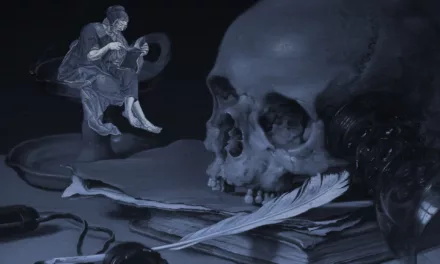
How do I know if I’ve picked the right protagonist?

“How do I know if a character I’ve set as a main character is going to be relevant to my story? I don’t want to make a whole character and get attached to them if they won’t help the narrative or contribute anything to the plot.”
This is a struggle I know all too well. So many times I’ve started writing and realised halfway through that the character I thought was secondary is actually way more interesting and plot-relevant than the character I thought was the protagonist.
A well-chosen main character drives your story forward, while a poorly chosen one can leave your narrative feeling unfocused or meandering. So how can you tell if you’ve chosen the right character to lead your story?
They drive the plot
It might sound obvious, but the most important test of a main character is whether they actively drive the story forward. A passive protagonist who simply reacts to events around them can make your story feel directionless. Your main character should make decisions, take actions, and influence the course of events. They should be the one whose choices create consequences that shape the narrative.
Whenever you’re trying to make these decisions, there are some questions you can ask yourself. These questions can come at the plotting stages, or even in the drafting stages if you don’t feel like your protagonist is interesting enough.
Ask yourself:
- Are they making critical decisions that affect the plot?
- Do their choices and actions create consequences?
- Would the story still happen without them?
If your character could be removed without significantly changing the story’s trajectory, they might not be the right protagonist. Your main character should be essential to how events unfold.
They have meaningful stakes
Your protagonist needs to have something meaningful at risk in the story. They need a goal, motivation, and conflict that works in tandem with the plot. These stakes should be both external (what they stand to lose in the physical world) and internal (what they stand to lose emotionally or personally). Without meaningful stakes, your protagonist’s journey lacks tension and urgency.
If you’re not feeling connected to your protagonist, then ask yourself these questions for all your front-facing characters.
Ask yourself:
- What does your character want for themselves?
- What does your character stand to lose?
- Why do they care about the outcome?
- How are they personally invested in the story’s conflict?
- What drives them to keep going when things get difficult?
If you ask these questions of all your characters and one character stands out from the crowd as being more tied to your plot’s central conflict, then you may have to make a change. One of the last novels I wrote had a protagonist that didn’t feel right. When the credited author and I went back and asked some of these questions, we realised it was the love interest who actually had a much more compelling motivation and better ties to the central plot. Rewriting it with their roles swapped completely changed the stakes and pacing, and it was a much better book for it.

Write more, write better, and achieve your goals with Novlr!
They experience growth or change
An interesting protagonist typically undergoes some form of development. They end the story somehow changed by what has happened to them. This change doesn’t always need to be positive. Sometimes characters can become more flawed or damaged through their experiences, but ultimately their journey through the story needs to leave a lasting impact on who they are.
If your protagonist doesn’t feel like they’re growing or changing, then you may have to switch it up a bit. Ask yourself:
- What is the difference between how your character starts the story vs how they are at the end.
- What lessons has your character learned?
- How do their experiences challenge or change their worldview?
- What internal conflicts do they need to resolve?
This doesn’t mean they need a complete personality overhaul, but they should be impacted by their experiences. If another character in your story undergoes a more prominent change, then they might be the character you need to focus on.
They connect to your theme
Strong protagonists often embody or challenge the story’s central themes. It’s ok if you don’t know your theme when you first start writing. But as your theme develops, you need to be willing to make changes to your story and adapt.
If your plot starts as one thing, but deeper themes emerge while you write, you might notice that another character from your cast actually fits those themes better. If that is the case, then you need to be willing to change direction.
If you get tp the point where a character feels disconnected from the emerging themes, ask yourself:
- How does their journey reflect your story’s deeper meaning?
- Do their struggles illuminate the themes you want to explore?
- Does their character arc serve the story’s message?
If another character answers these questions better, then you may need to change tack and give a different character the spotlight.
Testing your protagonist’s relevance
If you’re unsure about a character’s importance, try these exercises:
- Write a one-paragraph summary of your story without mentioning this character.
- List the major plot points and note which ones directly result from their actions.
- Imagine replacing them with a different character. How much would need to change?
The answers will help you decide if your protagonist really essential to your narrative. Don’t be afraid to make changes if a character isn’t serving your story as well as they could, and don’t be afraid to make those changes at any time during the writing process. I’ve written full first drafts before changing characters and doing a full rewrite. That’s what drafting is for!
Be open to the process and let yourself discover the story and what works for what you’re trying to convey. Trial and error are a big part of the writing journey.




























